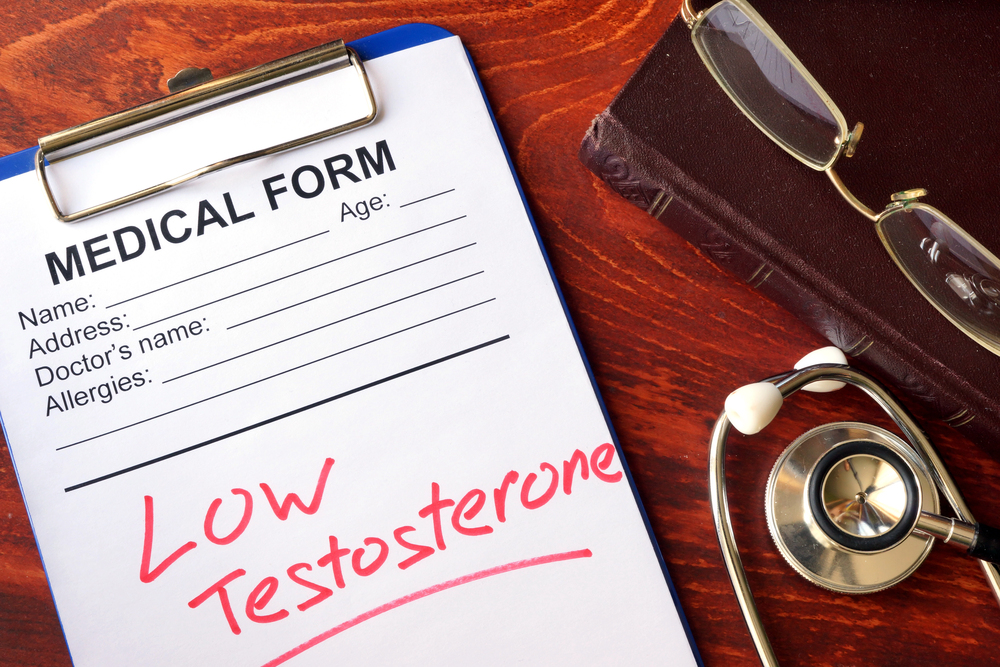
Have you ever wondered if you have low testosterone? What does that mean and why does it matter? Let the Urology Associates of South Bend answer these questions for you.
What is Low Testosterone?
Low testosterone is technically called Testosterone Deficiency Syndrome, or TD. This simply means that testosterone, the male sex hormone, isn’t being produced at optimal levels.
It’s difficult to know how many men are suffering with TD. We do know that young men are much less likely to have TD (as low as 1%), while up to half of men over 80 are dealing with low testosterone.This is because lowered testosterone production happens gradually with age.
Having TD can impact your life in a variety of ways. Let’s take a look at the symptoms associated with low testosterone:
Symptoms
There are many symptoms related to low testosterone. Some can be signs of other conditions as well. It’s important to talk to your doctor if you notice any of these symptoms in your life. The Urology Associates of South Bend can walk through your symptoms with you to determine what is going on.
If you are suffering from TD, you may be experiencing…
- Low sex drive
- Erectile dysfunction
- Fatigue
- Change in sleep patterns
- Loss of muscle mass
- Weight gain
- Hair loss/slowed hair growth
- Depression
- Difficulty focusing
- Poor memory
- Emotional changes
Only experiencing one of these symptoms does not necessarily mean you have Testosterone Deficiency. However, a combination of signs is evidence that you should discuss TD with your doctor. For example, low sex drive could be attributed to a number of factors. But if that low sex drive is accompanied by weight gain and fatigue, low testosterone is a very real possibility.
Risk factors
Age impacts levels of testosterone. But there are other factors that can raise your risk of developing TD. These factors include:
- Obesity
- Type 2 Diabetes
- High blood pressure
- Certain medications (chemotherapy, narcotics, antidepressants)
- Autoimmune disease
- Hormonal disorders
- Damage to the testicles
- HIV or AIDS
Treatment
Studies are inconclusive about whether or not treatment can slow or reverse the natural decline of testosterone levels in healthy men as they age. But the good news is, if you have an unnatural reduction in levels, there are some things you can do to improve your condition.
It is first and foremost important to maintain a healthy lifestyle. Make sure you are regularly active and keeping a healthy weight. It’s also important to be getting enough sleep every night.
In addition to taking care of your daily health, there is the option of Testosterone Therapy (TT). There are 5 common ways that TT is administered:
- Transdermal (Topical) – Skin patches, gels, creams, or liquids.
- Intranasal – A gel is pumped into each nostril.
- Oral – A patch placed above your incisor.
- Injection – Injected directly into the muscle.
- Pellets – Placed under the skin, releasing slowly.
Testosterone Therapy could be an excellent option for you, but it’s important to discuss this option with your doctor first. Taking TT when you haven’t been tested for TD is not a safe practice. However, if your doctor finds that it is necessary, Testosterone Therapy could very well change your life.
Next Steps
Declining testosterone levels is a natural part of aging. But if the symptoms we discussed are inhibiting your every day life, it’s time to talk with your urologist.
The Urology Associates of South Bend are devoted to bringing you the best care possible. Our doctors are trained and certified to provide the most advanced treatment options available. Contact us today!